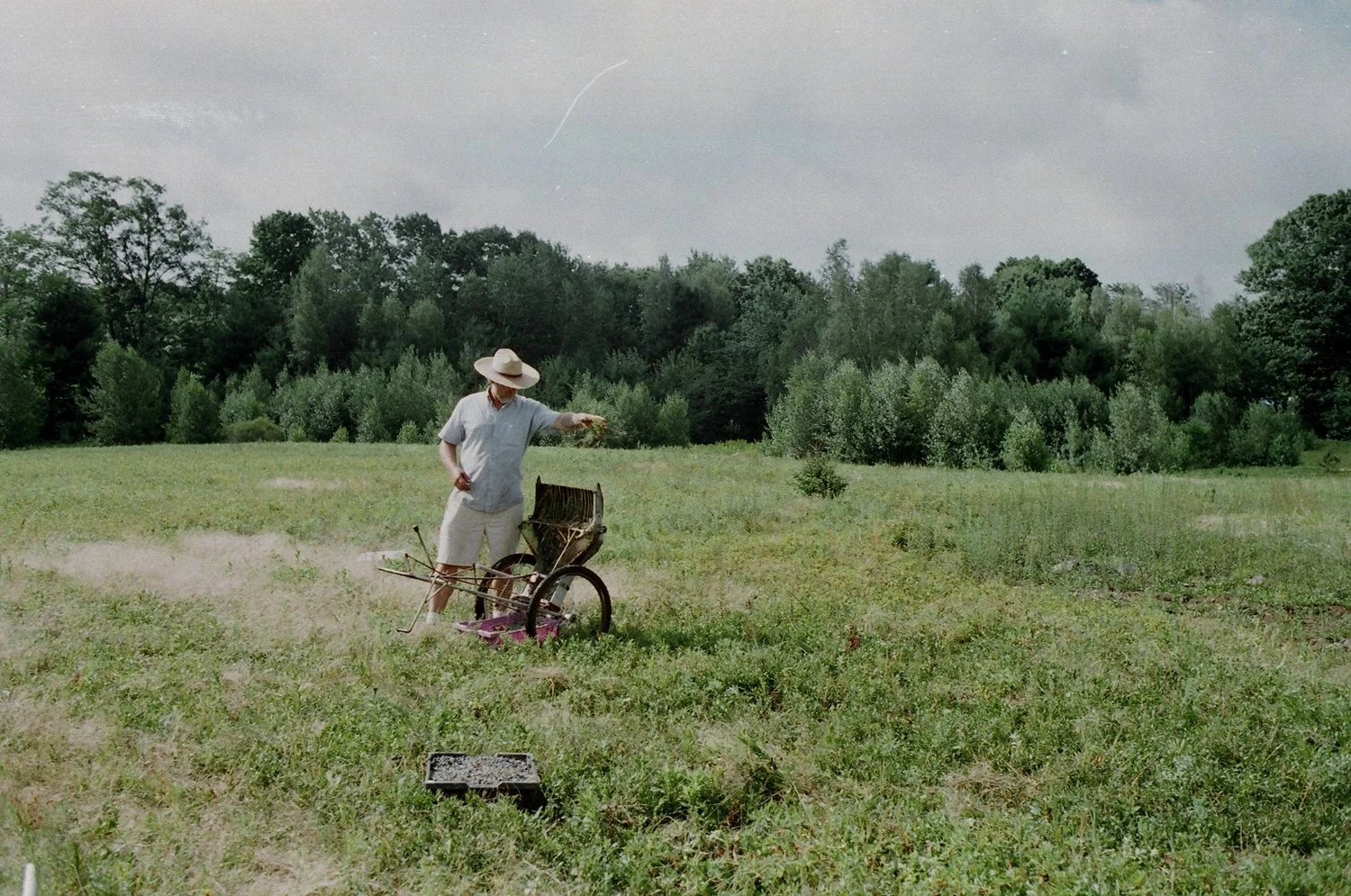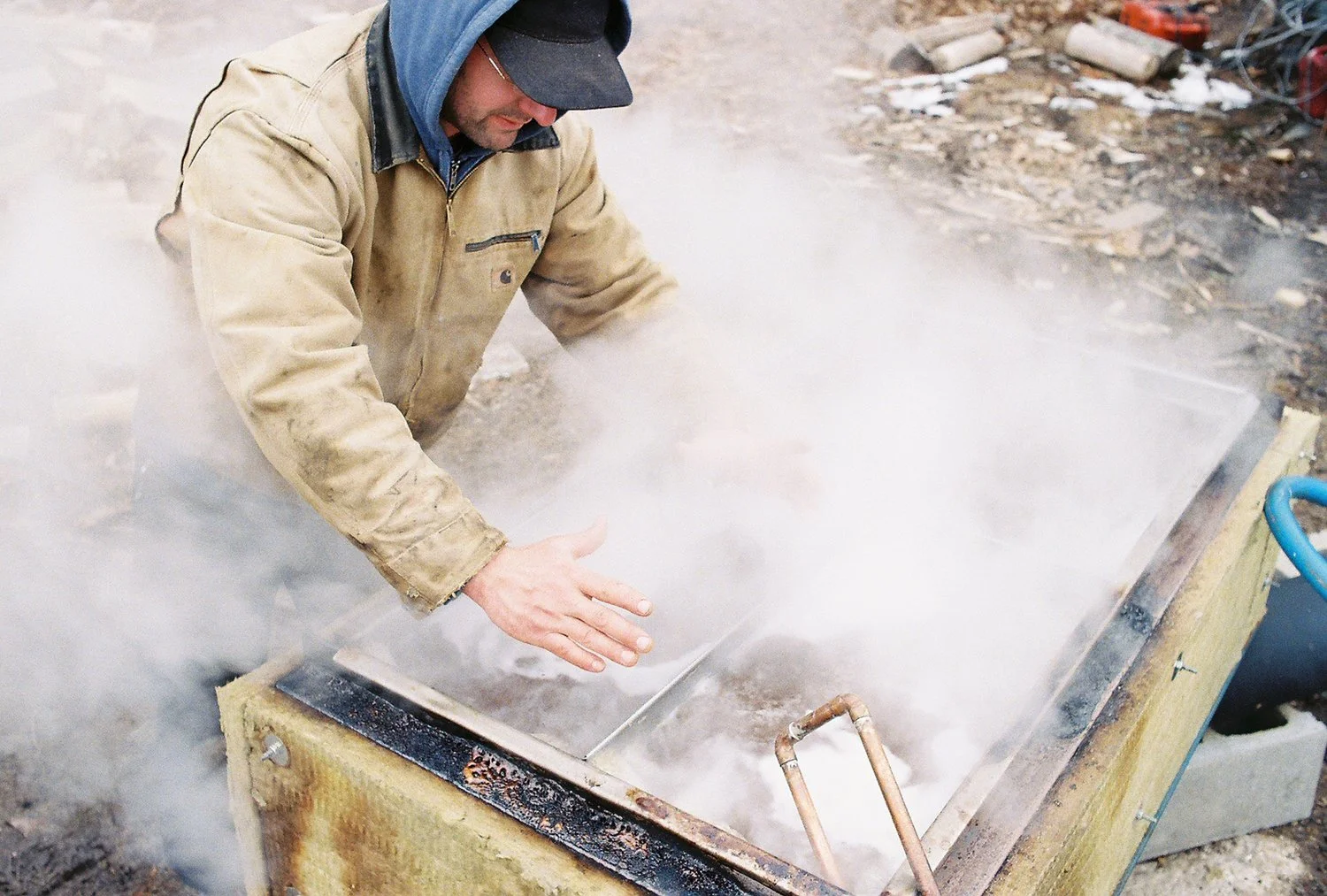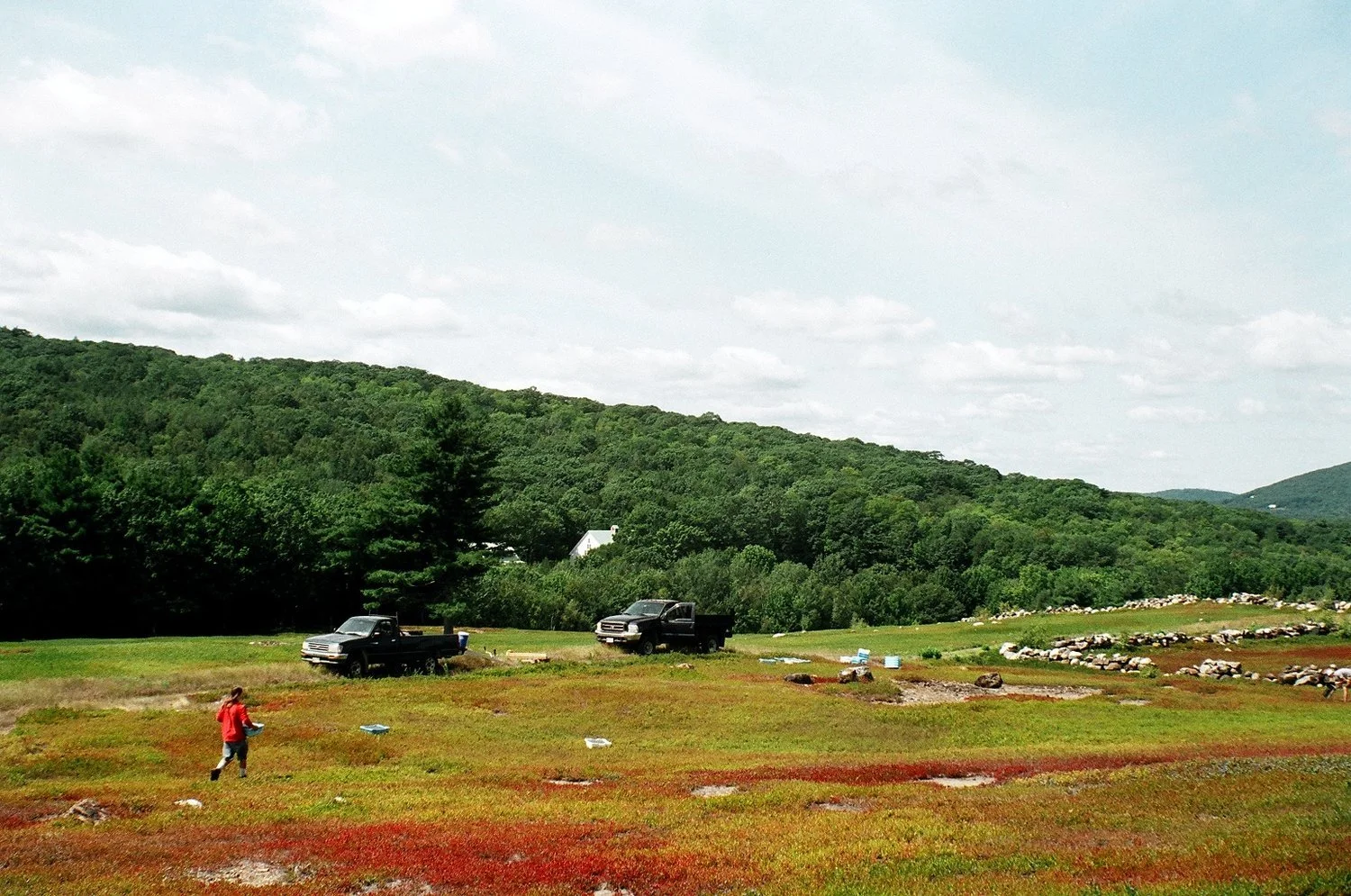Vendor Highlight: Ewing Fruit Co.
Fruits of Labor: Ewing Fruit Company










Written by Jan Heimlich
In late July and throughout August, the blueberry barrens of Maine will be bursting with tiny berries. While some folks enjoy picking them themselves, Ewing Fruit Company does the work, selling organic, wild Maine blueberries at their farm in Warren and in natural food stores.
John Grote, a former carpenter, bought the 70-acre property in 2011. There’s no telling how long the barrens have been producing fruit, says his partner, Arla Casselman. Wild blueberries are perennials that grow in open areas with sandy soil. “The blueberries could have been growing there for 100 years,” she says.
Customers can pre-order a 10-pound box of fresh or frozen blueberries online (for pick up at the farm in August). Customers can also purchase them from a handful of natural food stores, including Good Tern Co-op, which carries their frozen blueberries year-round.
Most Mainers are familiar with the attributes of wild blueberries that make them superior to cultivated blueberries that tend to be larger and uniform in color. Rich with anthocyanins, the wild variety offers powerful antioxidants, and in the fall, the barrens turn a brilliant red color.
Arla says that wild blueberries come in many different colors, such as blue, gray, purple, and black. “With all those colors, some are more sweet and more tart,” she explains.
Ewing Fruit Company also sells two unusual, tasty products: Wild Maine blueberry sriracha sauce and wild Maine blueberry cider vinegar. Both are John’s creations and sold in stores throughout the midcoast region. The sriracha sauce is made from fermented Red Fresno and Habañero peppers and garlic. Unlike traditional sriracha, it’s sweetened with blueberries, carrots, and maple syrup and no refined sugars.
The vinegar is similar to apple cider vinegar, except blueberries, not apples, give it its unique flavor. Bottling it prevents a great deal of waste. During the winnowing process, hundreds of pounds of blueberries become “scrap fruit” and can’t be sold. Rather than dispose of or compost them, they go into Ewing’s blueberry cider vinegar.
Learn more about Ewing Farm by visiting their website, and following them on Instagram and Facebook!
